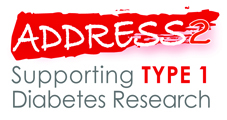Immune response in T1D
Recruiting to: ongoing
Summary
We are inviting people with and without T1D to identify the immune mechanisms that are driven by genome variations that are associated with protection from T1D development in people with and without other diabetes genetic risk factors. We will explore people’s immune cells to see how functional those cells are, and whether there are differences in their phenotype in individuals that have protective genes compared to those that have gene variations that suggest increased risk to T1D development.
Contact us
Call: 020 7594 3735
Email: m.dominguez-villar@imperial.ac.uk
ELSA – EARLY SURVEILLANCE FOR AUTOIMMUNE DIABETES
Recruiting to: ongoing
‘Sooner we screen, sooner we can intervene’
Aim
The ELSA Study is screening children aged from 3-13 years to determine their risk of developing type 1 diabetes.
Who can take part?
ANY child aged 3-13 years who does not currently have type 1 diabetes. There is no need for the child to be from a family where someone has type 1 diabetes – children from any family can be tested.
What does the ELSA study involve?
Parents/guardians willing for their child/ren to take part in the ELSA Study can complete the consent form online or by post. The screening test is a simple finger-stick blood test. The home testing kit is available to families across the United Kingdom and this will be sent by post with instructions and a video of how to perform the test.
For any child found to be at risk of type 1 diabetes in the future, we will invite the family to attend a one-to-one education session to explain what the results mean. We will also refer the family to further research studies their child may be eligible for, including monitoring follow-up and prevention trials.
For more information, please visit our online information tool for parents: https://elsa-info.digitrial.com/get-started
For any queries, please contact the ELSA Study Team:
Online contact form: https://elsadiabetes.nhs.uk/contact-us/
Call: 0121 414 7814 (Monday – Friday, 9-5pm)
Email: elsa@contacts.bham.ac.uk
